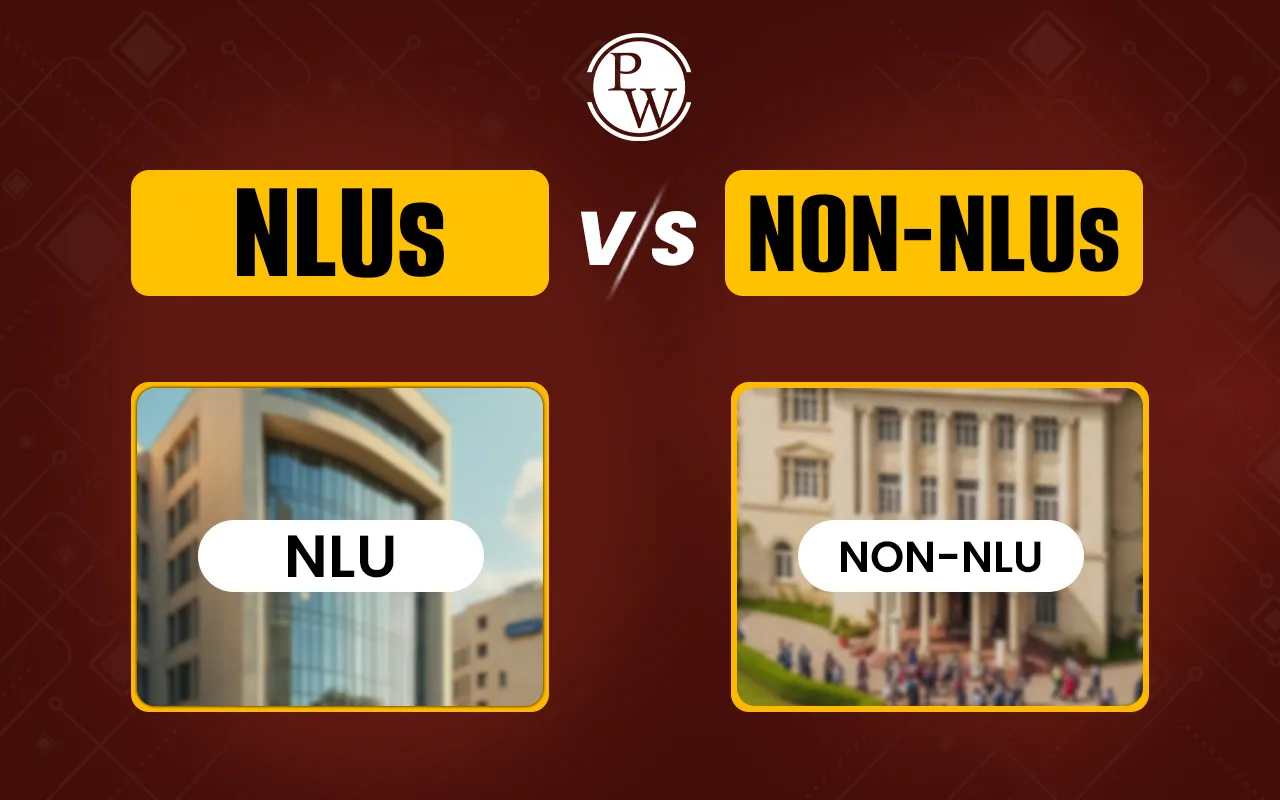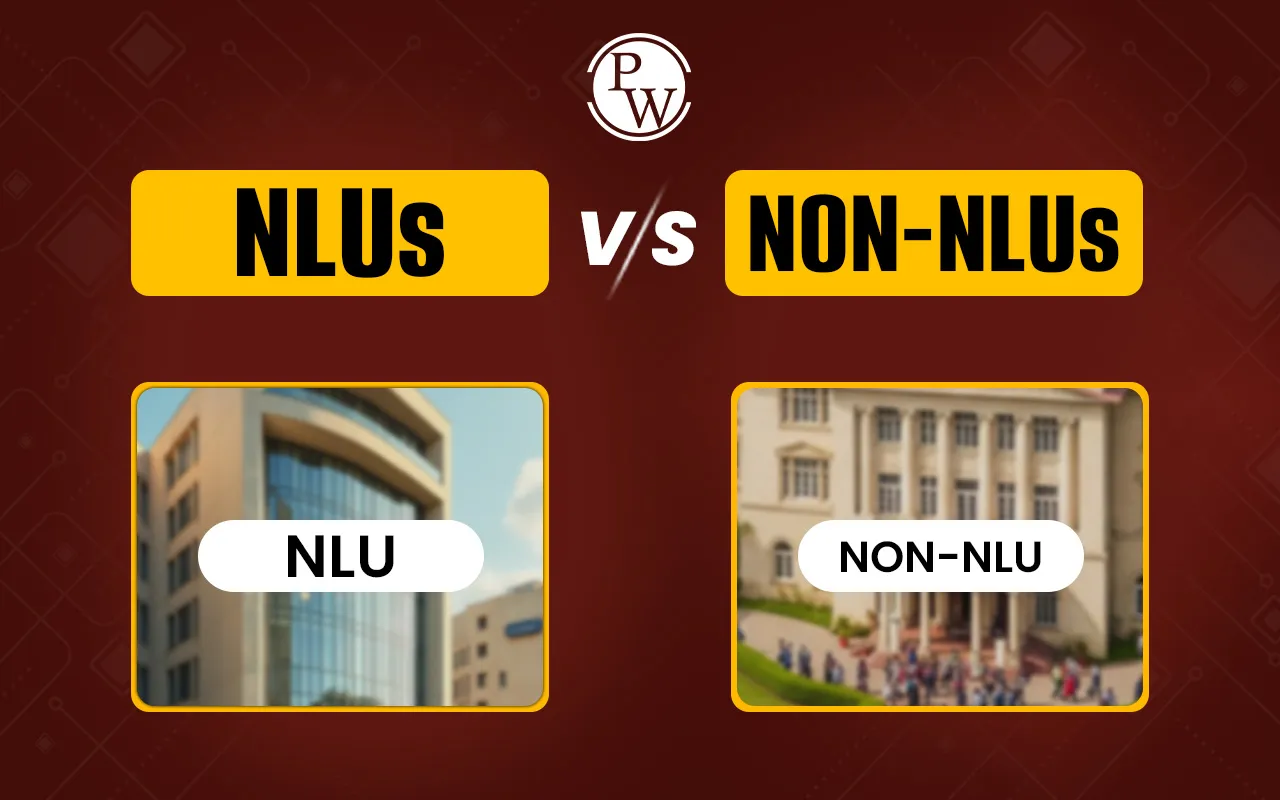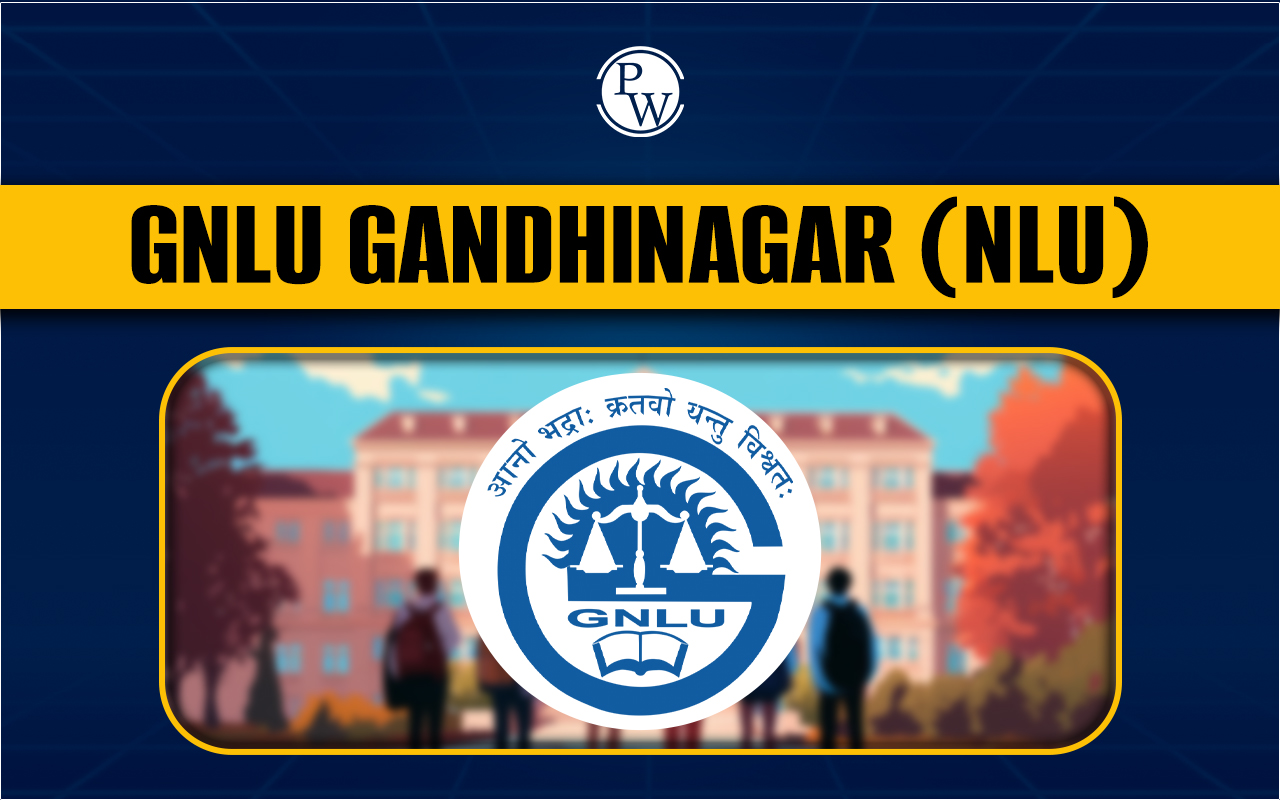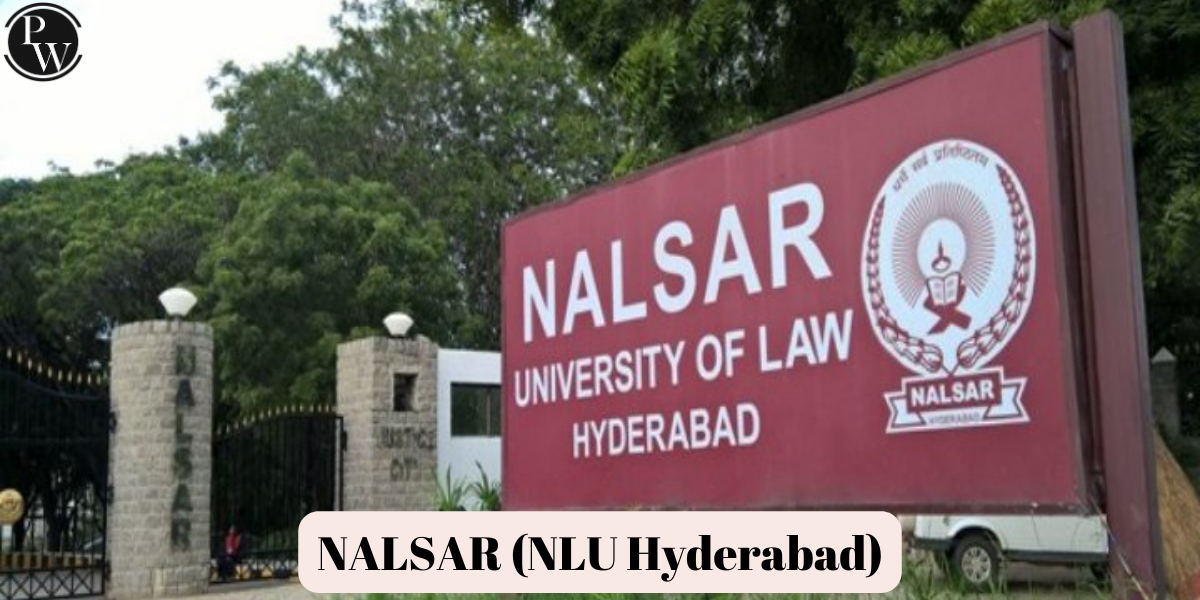

NLUs Vs Non-NLUs: Aspirants interested in pursuing law as a career, getting admission to any NLU is a dream. Since there are 26 NLUs and seats are limited, non-NLUs can also be a good choice. The choice between NLUs (National Law Universities) and non-NLUs is a significant one for law aspirants, as it shapes their academic experience, exposure, and career prospects.
While NLUs are highly sought-after due to their rigorous curriculum, national reputation, and robust placement opportunities, non-NLUs may offer a wider range of specializations and flexible academic environments. For aspirants, while choosing between NLUs and non-NLUs, factors such as NIRF rankings, course offerings, seat intake, and fee structure must be pondered upon.
Checkout Law Books from PW Store
NLUs Vs Non-NLUs Course Curriculum
NLUs offer a wide range of integrated undergraduate law programs such as BA LLB (Hons.), BBA LLB, BCom LLB, and BSc LLB, with some NLUs also providing three-year LLB and BA (Hons.) courses. Many NLUs offer additional diploma and certificate programs in niche areas such as Cyber Law, Air and Space Law, Medical Law, Child Rights, and Business Laws.
Non-NLUs, including government and private law colleges, follow the syllabus prescribed by their affiliating universities and may have fewer or less diverse specialization options, with a stronger focus on traditional law streams.
NLUs Vs Non-NLUs Admission Process
The admission process for NLUs (National Law Universities) is mainly based on national-level entrance exams such as CLAT (Common Law Admission Test) for NLUs and AILET for NLU Delhi. Candidates must register online, appear for the entrance exam, and participate in centralized counselling rounds where seats are allotted based on rank, preferences, and category.
In contrast, non-NLUs provide admission based on state-level entrance exams and university-specific tests. Many private institutions offer direct admission based on 12th marks or institutional criteria.
NLUs Vs Non-NLUs Eligibility Criteria
For NLUs, candidates need to have completed 10+2 or an equivalent exam with a minimum of 45% aggregate marks for the general category and 40% for reserved categories for undergraduate law programs. Admissions are based on CLAT for NLUs and AILET for NLU Delhi.
Contrarily, for non-NLUs, candidates need to fulfill the specific eligibility criteria prescribed by the particular college. Candidates must read the official brochure to understand the individual eligibility criteria for non-NLUs.
NLUs Vs Non-NLUs Fee Structure
The fee structure at NLUs (National Law Universities) is generally more affordable than that of many private non-NLUs. The fees for the UG program range from approximately Rs 1 lakh to Rs 3 lakh per year, depending on the institution and course. For example, NLU Delhi charges an annual tuition fee of Rs 1,47,000, with total yearly expenses (including hostel and mess) reaching around Rs 3 lakh.
In contrast, top private non-NLUs often charge significantly higher fees, with annual costs for BA LLB or BBA LLB programs ranging from Rs 3 lakh to Rs 9 lakh or more. NLU fees cover tuition, infrastructure, library, sports, hostel, and other amenities, while non-NLUs may have additional charges for similar facilities.
NLUs Vs Non-NLUs Placement Opportunities
Placement opportunities at NLUs are widely recognized as among the best in the country, with top recruiters including leading law firms, corporates, banks, and international organizations regularly participating in campus placements. NLUs such as NLSIU Bangalore, NLU Delhi, NALSAR Hyderabad, and NLU Jodhpur consistently report high placement rates, with average annual packages ranging from Rs 14 to Rs 22.5 lakh.
In contrast, non-NLUs often have less structured placement processes, fewer top-tier recruiters, and typically lower average salary packages. The strong alumni network, industry connections, and dedicated placement cells at NLUs give their graduates a significant edge in securing high-profile legal roles.
List of National Law Universities (NLUs)
As of 2025, there are over 20 NLUs participating in CLAT, including top names like NLSIU Bengaluru, NALSAR Hyderabad, NLIU Bhopal, WBNUJS Kolkata, and NLU Jodhpur, among others. These universities offer integrated undergraduate and postgraduate law programs.
List of Non-National Law Universities (NLUs)
Non-National Law Universities (non-NLUs) in India include a wide range of top private and government law colleges that are not part of the NLU network but still offer quality legal education and strong placement opportunities. Leading private law schools such as Jindal Global Law School (OP Jindal Global University), Symbiosis Law School, Amity University, Christ University, and ICFAI.
- Symbiosis Law School, Pune
- Shiksha'O' Anusandhan (Deemed to be University)
- KIIT School of Law (KSOL)
- Saveetha Institute of Medical and Technical Science
- School of Law, SASTRA
- School of Law, Christ University
- LPU - Lovely Professional University
- School of Law, UPES
- ICFAI Law School
- Army Institute of Law, Mohali
- Amity University, Gurugram, Haryana
NLUs Vs Non-NLUs FAQs
Are NLUs always better than non-NLUs for a law career?
How do the course curricula differ between NLUs and non-NLUs?
Is there a significant fee difference between NLUs and non-NLUs?
Do NLUs offer better placement opportunities?
Are there differences in specializations and program diversity?












